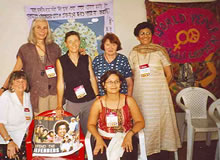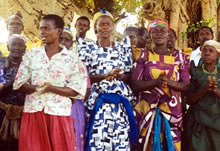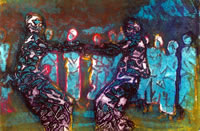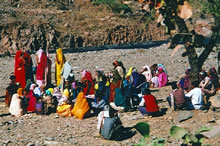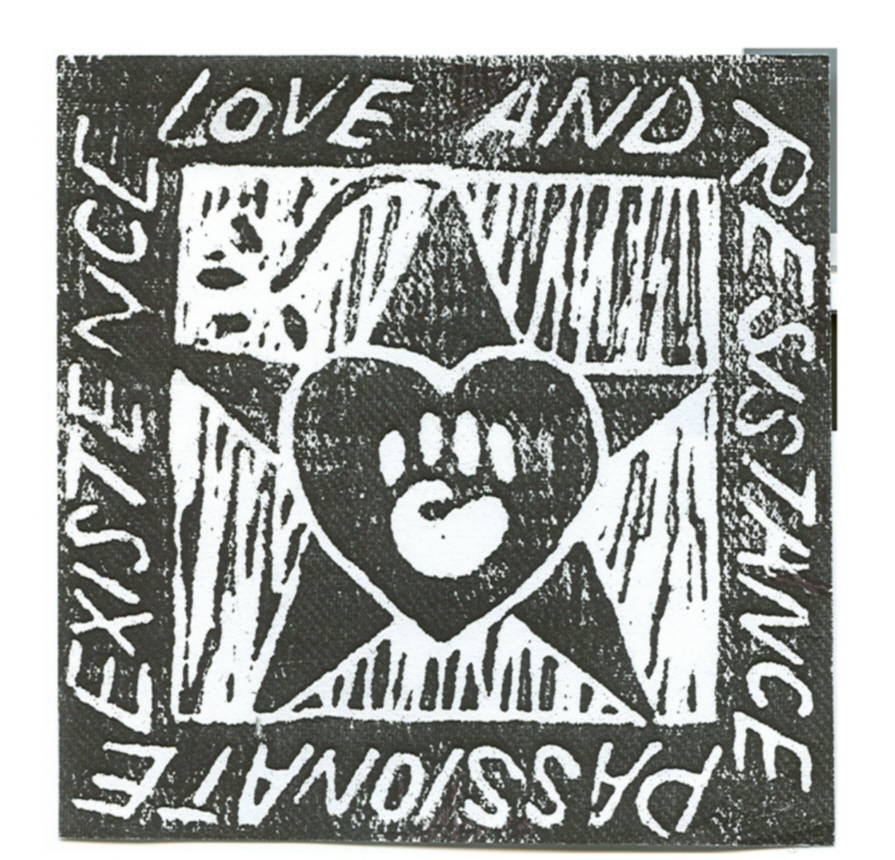Report on a panel organized by the Barnard-Boecker Centre Foundation (BBCF) Chaired by Theresa Wolfwood, Mumbai, WSF, 2004.
“…This is not paradise
dear adam dear eve
but it is a rung on the ladder
upwards
towards a possible
breathtaking landscape.”
– From Bellhouse Bay by Dorothy Livesay
Introduction
The commons are all the resources, from water, minerals, land and even air to the institutions of cooperation and justice that have been created by many people and cultures. The commons also includes our shared history, knowledge, experience and communication; they were our indivisible birthright and inheritance. All are being commodified, discarded, stolen or privatized by the forces of globalization and militarization, resulting in the impoverishment of life and the insecurity of the world and its citizens.
The commons are our connection to our society and our environment, the abundance of the commons, until recently, taken for granted, is what roots us in life; the withering away of the commons will whither away the richness and creativity of all our lives.
Women are most vulnerable and insecure in the new globalization and are in the forefront of the struggle to maintain and enhance the commons. It is women who are suffering most from the results of globalization – the lack of “the freedom from fear and want” which the Universal Declaration of Human Rights states is a fundamental human right.
In our work to preserve community and the knowledge of women, peasants, indigenous people and the elders of all groups, “we can be our own media”, as Rosalie Bertell said in Beijing in 1995. We must be our own media in this time when information is monopolized, privatized and controlled by profit driven corporations. It is by coming together in community at home as well as gatherings like the WSF that we save our stories and share our wisdom.
The preservation of cultural and natural diversity depends on our ability and willingness to understand the root causes of the invasion of the commons. Women need to understand the greedy forces of globalization and its instruments as well as the cult of militarism that traps and enraptures the powerless as well as the powerful. As the largest group on the world, we are marginalized by patriarchal elites who use violence against women as a means of oppression and a means to prevent women from building anti-war resistance; yet civilians, mainly women and children, are the major victims of modern warfare – and women know it.
War and violence – the brute military enforcement of political and economic power causes the breakdown of community, through, not only the killing, the rape, the destruction of human settlements, the wanton waste of natural resources and devastation of the physical environment; but also through the loss of cohesive community as millions disperse into a global diaspora. Languages, history, stories, place-rooted knowledge and experience are lost as refugees struggle to barely exist and adapt to new, strange surroundings. The loss of land, livelihood and home inflicts immeasurable injury to global cultural diversity and endangered societies. When women loose their community, they loose their commons as well.
The weapons of nuclear fission developed and used increasingly in the last sixty years threaten the genetic commons of all life forms; all the genetic heritage of future lives is carried by life present on earth today. The nuclear weapons exploded into our complex ecosystem by the many nations that aspire to the cult of ultimate militarism are more damaging to our genetic commons than egregious and deliberate genetic modification for profit. The widespread development and use of weapons incorporating so-called “depleted uranium” are dispensing genetic damage that will pass on for countless generations, most obviously in Iraq, but also in former Yugoslavia and Afghanistan, and unknown test sites and on military and civilian guinea pigs. War and war preparations are terrible threat to the commons. This is why I consider working for peace, an end to violence and a dispelling of the cult of militarism to be an integral part of working for a just and cooperative world. We seek, not domination over the commons, nature and other beings, rather we work for a world where our knowledge and building of human societies are advanced with humility and respect for the vast universe of which we are a small part.
At this panel at the World Social Forum in Mumbai, 2004, a group of women from around the world discussed the effects of the loss of the commons and how women are working to ensure the security of the commons. With the participants who attended the workshop we created a place and conversation where the commons is respected. What we envision is no less than real community-based democracy and decision-making in which our cultural and environmental commons are acknowledged and protected as a priceless trust for all people in the complex cosmos where we find ourselves for a brief instant. As feminists, peace, environmental and justice activists we have the responsibility to use our wisdom and creativity to preserve our heritage.
Although she had planned to come, Irene Fernandez, the Director of Tenaganita, a Human Rights organization in Malaysia, was prohibited from leaving Malaysia by its government, she was refused her passport. Irene has received world recognition for her work with migrant workers, sex trade workers and HIV/AIDS. In 2003, after an eight year long trial, she was sentenced to jail for one year for publishing a report on migrant workers in Malaysia that exposed their oppression. She is free on bail and there is a global effort to have her cleared and free. We had a chair for her at the panel with a poster calling for support of her work and we observed a minute of silence in her honour. Add your support: www.tenaganita.org (TW)
Speakers
Abha Bhaiyais one of founders of Jagori, a New Delhi based feminist collective, founded 20 years ago, committed to the spread of feminist ideology to create a just society for women and other marginalized groups.
The entire cosmos is a cooperative. The sun, the moon, and the stats live together as a cooperative. The same is true for humans and animals, trees, and the earth. When we realize that the world is a mutual, interdependent, cooperative enterprise…. Then we can build a noble environment. If our lives are not based on this truth, then we shall perish.” A Western Buddhist has referred to Buddhism as a “religious ecology”.
– Thai Buddhist monk, Buddhadasa Bhikku
The valourization of the written word had done immense disservice to oral traditions, rituals practices and collective memories. The arrogance of the literate world has declared, by implication, a large number of people as illiterate, ignorant, stupid, and unknowledgeable.
Reading and writing are some of the multiple skills that we acquire which can be beneficial/empowering if the immense wealth of knowledge systems that people have carried forward for centuries is not denied.
During our work on strengthening multiple literacies with the so called ‘illiterate women’, I was made to recognize how “not knowing” and (accepting that unknown exists) is an important kind ‘of knowing.’
This brings me to the issue of how the new knowledge regimes have frozen binary opposites as the world order- the rational vs irrational, mind vs body, qualitative vs quantitative, spiritual vs scientific, open exchange vs secrecy, freedom vs bondage, whisper vs scream and so on.
Not only that the binary opposites are posed as an important world view but a hierarchy is set to define which of the two is desirable, fitting the definition of “scientific knowledge”.
It is in this context that I want to talk about the heritage of common knowledge systems that rural poor women carry forward. We, in Jagori, have been involved in a process of mutual learning and building health literacy among traditional health and birth practitioners. In this context working with women healers was a humbling process. In one of the workshops with an oppressed group of women in a very remote village of the Northern India, I was woken up in the middle of the night – one of the children was very sick – as I entered the room, the site was grim. The child was struggling for breath – the mother stood away with a group of women with fear and terror of death written large on their faces. Losing a child or two is an intimate experience for most women. They knew this boy was precious for the mother, as he was born after 4 girls. As I started cold compression to bring down the fever, I called for a women participant who I knew was a healer. She arrived, a very poor middle aged widowed women, she washed her hands, saluted the earth, and asked standing women for kohl (what we put in our eyes) prepared on a dark night- the night before the new moon arrives. With kohl she drew a black circle around the diaphragm of the child, the site screaming for breath, and began chanting. She drew me into the orbit of her energy… I continued with cold compression and she with her prayer appeasing the evil spirit.
The hospital was too far so we waited for the dawn. Although, the child looked better, we took the child to the nearest health centre allowing the allopathic intervention to restore his well being. What remained imprinted on my mind was the healers; she was central in averting the crisis for all of us… wiping away that terror from our faces… comforting our souls.

In the process of documenting remedies, women not only described the potions, the accompanied rituals but also the role of seasons, the time of the day and night, the energy of the space where healing rituals are performed. Once a healer repeatedly reminded me to pluck rose petals in the early hours of the day with dew drops still visible on them- they are not bound by the examination tables. They have shared with us how certain rituals yield best results if performed at cross roads/ on thresholds/ between twilights, urging us to accept that healing resides in the twilight zone of mystery, fluid knowledge, and an equally large terrain of unknown powers!
This helped us to initiate a process of setting up women’s healing spaces, a place where women can prepare remedies, go to forests to collect their plants, sit in dialogue on other aspects of women’s lives. While they attempt to heal infertility, they are also sharing the threat and fear of desertion of the women by her husbands’ families that she brings with her!
With increased state propaganda backed by giant pharmaceutical industries for hospital based deliveries, a large number of midwives will be wiped out. This has a direct impact on healers as often the two coincide. Healing is an extension of midwifery. While journeying from simplicity to complexities, we need to recover nurturing bonds, build a cosmo-vision that does not deviate from the inherent, connectedness to nature, its diversities and the potential it carries to heal and restore They talk about imbalance of five elements – water, fire, earth, air and space. Similarly, they refer to five elements of plants that form an entire life cycle – however the root is the most potent as its hidden and holds mystery of rebirth.
In the end I would like to reiterate that we are involved in a very fragile project – healers whether women or men are fast becoming an extinct lot. On the one hand, the commercialization of remedies, in the name of alternatives, is already losing its inherent power and on the other, fractured livelihoods, pushing women out of their familiar habitat and the security of commons are posing a big danger to peoples common knowledge systems. (Text provided by AB)
Maria Mies is a well-known feminist scholar, anti-globalization activist and teacher in Germany. Her many books include co-authoring ECOFEMINISM and THE SUBSISTENCE PERSPECTIVE.
Put Life in the Centre ”
– MM
It is important for feminists to understand what neoliberalism means and to share the information on why and what it is. Our commons – the fields, water, our public spaces are being privatized. The word “private” comes from the Latin,privare : to rob, to steal, to deprive and that is exactly what is happening under neoliberalism – we are being robbed and deprived of our commons.
We can also see that this robbery is often accompanied by violence, as in Iraq, but also as laws are changed by willing governments, the law itself make violent robbery, legal. In India we have seen the results of people resisting the sale of their sacred river, the Ganges, to a big European firm, Suez- Lyonnaise. People have been beaten and jailed for protecting the commons.
Capitalism has lead to privatization and its destruction of the commons. People in the wage labour force are hired to do the work of the capitalists and participate thus in the destroying of their own commons. The state also participates in this process through the selling of the commons and entering into public-private partnership which is another way of privatizing the commons using our tax money as well.
This is why I have for many years written about and supported a subsistence economy and way of life. We can see examples in many places around the world, including Bangladesh, where communities have build up a satisfying subsistence economy without privatization and with traditional non-chemical agriculture. This livelihood means people are not dependent on selling themselves as commodities in a destructive wage economy. We must support the right of people to live ethically in a subsistence economy based on community stewardship.
NB: Maria Mies has spent decades developing her theories and observations on feminism and subsistence; I recommend all or any of her books, in English, German and many other languages for in-depth understanding of her work. For example, a recent book is: Maria Mies & Veronika Bennholdt-Thomsen . THE SUBSISTENCE PERSPECTIVE: Beyond the globalized economy. ZED BOOKS, London, UK & New York, USA. A detailed and practical look at people and groups the world over are living full lives outside the global economy. Theory, practice and humour as well! Maria Mies also organized a major international conference on Women, Privatization and the GATS in Cologne, Germany, May 2003. The proceedings and papers are available in both English and German on the internet. www.nadir.org/nadir/initiativ/agp/gender/antipat/stopgats.htm (From notes by TW)
Claudia von Werlhof is a professor of Women’s Studies/ Political Sciences at the University of Innsbruck, Austria. She is a peace and anti-globalization activist and organizer and co-editor of the book: THERE IS AN ALTERNATIVE: Subsistence and Worldwide Resistance to Corporate Globalization.
Globalization is The New Colonialism. ”
– CvW
The women’s movement is only thirty years old and we have had many struggles and victories. Now we participate in a new resistance, for six years we have been part of the movement against globalization and neoliberalism. We were in the forefront of the movement which defeated the MAI, The Multinational Agreement on Investment. The MAI has been merged into the latest agreement, the GATS, The General Agreement on Trade in Services. Our realization of the GATS process leads us to the understanding that everything in what we call the commons is up for commodification.
This new process of enclosure of services as well as resources includes the public service in Austria. Austria is a water- rich country. Water is one of our most precious commodities. Governments are separating the product from its producers to make it easier to sell off the resources. Communal water services controlled locally are being centralized and removed from democratic control. Private-public partnerships are being created to transform the commons into marketable commodities. This whole process means that people are now further expropriated in ways which we define as the continuation of processes of “primitive accumulation” – or colonization – creating a new private property for the corporations and a new growth of their profits.
This new undemocratic colonialism has now reached the universities. Via the “University Law 2002” we have been forced to return to a sort of absolutism with respect to the forms of organization. Sooner or later our research is going to be controlled by corporate money or abolished. Teaching is now in the process of being changed into uniform units of course work that can be presented by anyone, not to speak of the so called e-learning with the computer. The special knowledge and relationship of the professor to both her subject matter and to her students is being eliminated. Knowledge is the latest commons to be commodified. This means that it will not be based on recognition any more but on a sort of a standardized “high-tech-job-training”. (From notes by TW and revised in writing by CvW)
A paper, GATS und Bildung (GATS and Education), by Claudia is available in German and will soon be available in English. Claudia organized an international conference in Innsbruck, Austria in 2003 on WATER. Papers and proceedings are available in German and English. Email: claudia.von-werlhof@uibk.ac.at
Susan Hawthorne from Australia is a feminist activist, poet, editor, writer and publisher. She is the author of “WILD POLITICS”, a brilliant analysis and description of political action that can save the world.
Disconnection is critical for a system based on profit. By contrast, biodiversity relies on connection and relationship.”
– from WILD POLITICS.
In Australia we have a protocol that we use at the beginning of a talk. It involves acknowledging the Indigenous people who have lived with the land for many thousands of years. So I’d like to begin by acknowledging the people of Mumbai, in particular the Tribal people.
The commons, common good, the wild, these are equivalent. They have in common a number of features. They resist ownership and containment. I consider this a good thing because what we are battling today is privatisation. The shift from common ownership to private ownership started with the conquest of peoples, with appropriation of land and resources through colonisation. Colonisation focused initially on gaining free access to resources such as minerals and trees, below and above the land. And the people were dispossessed, separated from their land and made to work the land whether by farming, forestry or mining in new and different ways. Ways that tended towards monocultures and homogenisation. These days privatisation is now being extended to living things including biological, botanical and water resources. And it is primarily Indigenous peoples and colonised peoples who resources are under threat.
As Maria Mies has noted, the word private comes from the Latin, privare : to rob, to steal, to deprive.
Deprivation through privatisation is precisely what is happening in the corporate world of patents. Patents and colonisation have parallel histories. Letters patents were sent by the Spanish king on voyages of “discovery” to the new world, along with prospectors, gold diggers. These days those voyages are undertaken by bioprospectors looking for ways of finding out how Indigenous and traditional peoples used medicinal plants. Having identified the plants, the bioprospector takes samples back to the laboratory where attempts are made to create so-called “novel life forms”. These wild plants are then privatised and patented in order to create profits for the corporation. No account is taken of the intellectual inputs by the peoples who preceded the bioprospectors.
Because knowledge claims work differently in Indigenous and Western communities, Indigenous communities are systematically disadvantaged. The knowledge is passed down orally, but until it is written up in a journal by a recognised scholar (in the main such scholars are from outside the community) it is not recognised as patentable knowledge. When Vandana Shiva and two other women challenged the WR Grace patent on the neem tree, they were able to overturn the patent because there were written Sanskrit sources dating back millennia. No orally-based community could succeed on these grounds.
A further area in which privatisation is occurring is in services. This is the key purpose of GATS, the General Agreement of Trade in Services due to be implemented by the WTO in 2005. GATS will allow for further privatisation of industries such as health and education. The Federal Australian government in this and previous terms (remember the introduction of GST – the goods and services tax) has had a significant focus on legislative reforms to education and health. The Nelson Report and the attempts that Abbott is making to change Medicare are all part of making the Australian economy ready for GATS. The Australian-United States Free Trade Agreement (AUSFTA) is a foretaste of some of what we can expect when GATS comes in. The main purpose of the AUSFTA from the US point of view is early access to Australian markets, ahead of the rush that could occur in 2005.
When I first read the GATS agreement a few years ago, I was confused by it. It did not seem to say very much. Indeed it was incredibly ambiguous. This feature, however, should not be ignored. Its ambiguity is its strength. It is so broad sweeping that nothing is excluded. I’m a publisher of books, and every aspect of the manufacture of books includes a host of services: research and writing, editing and typesetting, design and printing, distribution and selling, as well as all the activities covered by financial and legal services. The only aspect that remains outside the ambit of services is the book you hold in your hand at the end. The GATS agreement is designed to open markets to “free” competition. A large US publisher, for example, is given the opportunity to be treated in the same way as a small Australian publisher, in spite of the fact that the small publisher is much more likely to include Australian cultural content in its publishing program. And the same is true of community health centres and public schools who could find themselves in competition with much larger organizations from overseas (not just the USA).
Privatising the common good through the concentration of media and multilateral agreements is about concentrating power, not dispersing it.
What we need is a vision for maintaining the commons, the common good, the wild. I suggest that instead of the inspiration of money, we become inspired by biodiversity.
Imagine doing a tax return in which you accounted not for your earning or your spending, but instead for your contribution to the life of the planet:
• the maintenance/enhancement of biodiversity;
• the maintenance/enhancement of cultural multiversity (a variety of viewpoints, of cultures)
Imagine a world in which men, instead of privatising and prostituting women, acted in ways that allowed women to live creative and fulfilling lives – i.e. given the dignity of full human rights.
What we should therefore be doing is developing the ability of individuals to give importance to relationship (let’s bring up boys to be like girls and girls to be like girls).
One can have a relationship with land, a relationship that involves responsibility and reciprocity and the sense that maintaining the land is important for future generations. Relationship is not about possession, rather it is about interaction. Relationship enhances the commons, the common good, the wild. I am cognisant of some of the other methods of the Howard government in their desire to “protect” Australia from so-called unwanted/illegal immigrants. There are two moves here. The first has been to declare refugees illegal, that is criminals. There is nothing unusual in this. In India, women who are traditional healers have been declared criminal, while simultaneously the knowledge which forms the basis of their healing is patented, privatised, stolen from them. The second move is the government’s approach to land. It has “excised” 4000 islands from Australia’s immigration zone. The language of “excision” reminds me of the practice of Female Genital Mutilation in which the clitoris is “excised” and the woman can then be considered marriageable.
We also need to stop over-simplifying things; we need to think beyond binary oppositions, to take account of complexity. We need to be able to thing about ecosystems and eco-social systems without flattening them into homogenised sameness. Possession is simple, static, insensitive to context; relationship is complex, dynamic and changing and embedded in context.
In a talk on “Aboriginal Women and Feminism”, Lilla Watson (1984) pointed out that for Aboriginal people the future extends as far forward as the past. This, she said, means a 40,000-year plan. By envisioning a future of this length, it becomes essential to consider how resources can be maintained, as if permanently. No corporation or private entity can last 40,000 years. What this time frame implies is being grounded in an eco-social system, a sense of place, and in the maintenance of the environment – including human cultural diversity (both individual and collective), land, biodiversity, and non-renewable resources – to such an extent that it would not be difficult to imagine it remaining in a sustainable state for many thousands of years. This has been done before, and it is Indigenous Australians who can provide a model for multigenerational sustainability of the commons, the good, the wild. (This text of her contribution was provided by SH) .
Also invited to speak, but unfortunately unable to attend the WSF and the panel were Monica Opole of Nairobi, Kenya and Beth Burrows of USA whose contributions would have further enriched our conversations.
Monica Opole is the Executive Director of CIKSAP -a group promoting indigenous knowledge of plants and food in Kenya which works with rural African women to restore traditional agriculture and the use of native food crops. Her expertise on researching and restoring women’s knowledge of nutrition, farming methods and tools and food preparation was sadly missed.
Beth Burrows is Director of the Edmonds Institute, Edmonds, WA, USA,’ “…described by some as a “group of smart, passionate people working flat-out for environmental and social justice “, called by others ” a public interest environmental think tank in the grassroots mode, lean on spending and long on accomplishments. . . ” ‘(from the website: www.edmonds-institute.org). Beth speaks widely on biotechnology, its implications for society, intellectual property and eugenics and has written extensively on these subjects. Consult the website for more information and a list of excellent publications.
Conclusion
There is none; we are part of an endless project, connected by our love of life based on the commons we cherish. Our work is not only endless, but it is endlessly connected to the work of millions of other who “put life in the centre.” Many thanks to the speakers and participants who were able to attend, special regrets to those who could not participate, and thanks to the many who helped in the organizing – including all the organizers and workers of the WSF. TW
Another World is not only possible, she is on her way. And on a quiet day, if you really listen, you can hear her breathing.”
– Arundhati Roy, WSF, 2003

